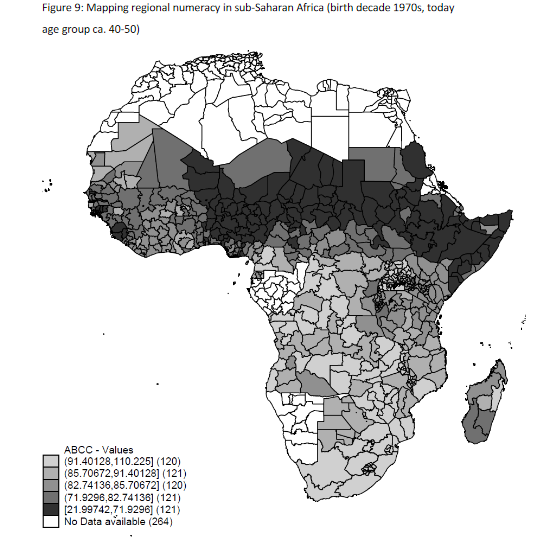Top News
28.01.2022
Assessing Global Education
Economists from Tübingen cooperate with UNESCO to improve numeracy education.
UNESCO's Global Education Monitoring Report, presented a few weeks ago, includes for the first time estimates of numerical skills on a broad scale (among other indicators). These estimates are based on research of the School of Business and Economics of Tübingen University.
Numerical skills are taught not only in the classroom, but also in families and other everyday contexts. The basis for this analysis is a new research technique, essentially created in the Tübingen Research Group for Economic History (around Prof. Jörg Baten), the so-called "Age-Heaping Technique". This technique uses the now well-documented relationship between rounding behavior in (incorrect) age data and basic numerical ability. In this "Global Education Monitoring Report", this approach provides a way to identify regions and social groups for which special education efforts are needed.
Overall, an increase in numerical skills has taken place over the past decades, which can be attributed primarily to increased participation in schooling. However, there are still large disparities, with the poorer strata of the population hardly participating in the positive development in some countries. A kind of epicenter of numerical capabilities in need of further development lies, for example, in the region between northern Nigeria, Niger and Somalia, as well as in Gambia and Sierra Leone. Overall, urban-rural disparities, as well as wealth disparities, correlate significantly with numerical ability. However, even social groups that received relatively large quantities of schooling were not always able to develop corresponding numerical skills - "non-state actors" such as families and friends also have a decisive role.
Source: Baten, J. (2022). Indirect Estimates, unesdoc.unesco.org/ark:/48223/pf0000380095

